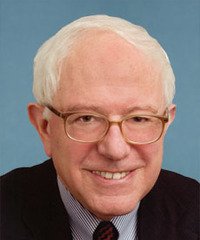
Bernie Sanders is serving his third term in the U.S. Senate after winning re-election in 2018. His previous 16 years in the House of Representatives make him the longest serving independent member of Congress in American history.
Born in 1941 in Brooklyn, Sanders attended James Madison High School, Brooklyn College and the University of Chicago. After graduating in 1964, he moved to Vermont. In 1981, he was elected (by 10 votes) to the first of four terms as mayor of Burlington. Sanders lectured at the John F. Kennedy School of Government at Harvard and at Hamilton College in upstate New York before his 1990 election as Vermont’s at-large member in Congress.
Senator Sanders believes every American should have access to safe, effective, and affordable prescription medications.
Senator Sanders is fighting to lower costs for consumers by bringing greater transparency and competition to the health care system. In 2014, he and the late Representative Elijah Cummings launched an investigation into 14 pharmaceutical companies after reports of skyrocketing prices for some generic drugs. As a result of that investigation, the lawmakers introduced S. 1364, the Medicaid Generic Drug Price Fairness Act, which became law at the end of 2015. This law requires generic drug companies to provide rebates to the Medicaid program if drug prices rise faster than the rate of inflation. The provision is estimated to save taxpayers $1 billion over ten years.
In 2019, Senator Sanders and Representative Cummings re-opened the investigation when a civil lawsuit filed against 20 generic drug companies by a coalition of 44 state attorneys general uncovered evidence that certain companies had coordinated to obstruct the Congressmen’s investigation in 2014. Senator Sanders and Representative Cummings also wrote to the U.S. Department of Justice, urging the agency to open a federal investigation into the companies’ potentially unlawful behavior and to hold them accountable to the maximum extent possible if appropriate. [As of August 2020,] the Department of Justice has filed charges against seven drug companies and four executives as part of an ongoing criminal antitrust investigation into generic drug price-fixing.
Senator Sanders also introduced a sweeping plan to lower drug prices in the 116th Congress with [Reps. Cummings and Khanna as well as] more than two dozen colleagues in the House and Senate. The plan includes three bills:
“It is unacceptable that Americans pay, by far, the highest prices in the world for prescription drugs.”
– Sen. Bernie Sanders (I-Vt.)
Sen. Sanders has worked to reduce the pharmaceutical industry’s influence over the drug approval process. In 2012, he was the only senator to vote against the Food and Drug Administration user fee bill because it did not do enough to address high prescription drug prices and was too generous to the pharmaceutical industry. In 2016, he opposed the 21st Century Cures Act because the bill cut Medicare and Medicaid to pay for corporate giveaways to the pharmaceutical industry.
Senator Sanders has also introduced S.1584 (116th), the Opioid Crisis Accountability and Results Act, which would require drug companies that manufacture opioids to reimburse the country for the negative economic impact of their products; S.495 (115th), the Medical Innovation Prize Fund Act, which would establish a multi-billion-dollar fund to reward drug innovation with cash prizes instead of monopoly rights; and S.1681 (115th), a bill to require drugs that are developed with federally funded research to be sold at reasonable prices.
In 1999, Sen. Sanders was the first member of Congress to take his constituents across the Canadian border to buy their prescription drugs at a fraction of the price they were forced to pay in the United States. He believes importing FDA-approved prescription drugs from Canada and other countries is a safe way to improve competition in the marketplace and reduce the price of prescription drugs, and led another trip to Canada in 2019.